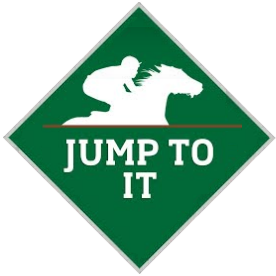
Vincent Finegan
Uncompetitive races are bad for the sport
 Odds-on favourites in maiden hurdles have become the norm
Odds-on favourites in maiden hurdles have become the norm
© Photo Healy Racing
There is no doubt that the concentration of all the best jumps horses in a handful of stables is having a profound effect on National Hunt racing in Ireland. Many races have become uncompetitive and this in turn has meant that many of the smaller stables are struggling to survive.
Something needs to be done soon or we will start to see more of the smaller trainers go out of business and this will only serve to exacerbate the problem.
The burning question is what can and will be done to level the playing field? The simplest solution for many is to positively discriminate in favour of the smaller yards. Have a set of races that are confined to yards that have trained less than a certain number of winners in a season, but I think this is the wrong solution.
The sport needs to find a way of achieving a level of parity for the smaller yards without penalising either the top trainers or more importantly their owners? Even the biggest and most successful yards have horses that struggle to win races. The owners of those horses should not be discriminated against simply because they have chosen to have their horse trained by Willie Mullins, Gordon Elliott, Henry de Bromhead or Gavin Cromwell.
The area of National Hunt racing where this issue of uncompetitiveness is most pronounced is in the Maiden Hurdle and Novice Hurdle division. All trainers must run their horses in these races in order to qualify for handicaps, but in reality only a tiny percentage of the runners are capable of competing off level weights with the better horses in these races.
All through the season we end up with large field maiden hurdles where there are only one or two potential winners. Some might argue that the bulk of horses running in these races don’t even bother to try as they are ultimately only running to attain a handicap rating.
There are any number of examples of these uncompetitive races being run throughout the season. To take one example, there was a 24 runner Maiden Hurdle at Fairyhouse in early December where Firefox (even money) beat Ballyburn (10/11 favourite). The bookies bet to over 100% on just two runners which indicates that the other 22 horses in the race had absolutely no chance of winning.
This Fairyhouse example had two horses, Firefox (already the winner of three bumpers) and Ballyburn (already the winner of a point-to-point and two bumpers), clashing on hurdles debut, but increasingly we are seeing just one similar horse in a maiden hurdle going off at long odds-on which is killing the betting on these events. What is the point in having races in the programme that discourage the public from placing bets?
Ballyburn has gone on to bigger and better things since that Fairyhouse maiden hurdle and following his impressive victory at Cheltenham two weeks ago is now the highest rated novice hurdler in training with an official mark of 163.
In contrast, Phillip Rothwell trains a horse named Without Exception which following seven runs over hurdles has a lowly rating of 82. Ballyburn would be required to carry almost six stone more than Without Exception if they met in a handicap hurdle.
If someone was to suggest to you that Without Exception should have a go at trying to beat Ballyburn off level weights you would probably think they’d need their head examined. Yet that is exactly what happened at Fairyhouse in December.
In order for Without Exception to get his career started and qualify for handicaps he needed to firstly race in maiden hurdles and the Fairyhouse contest was his third such run. Unsurprisingly he was beaten 63 lengths by Firefox and Ballyburn off level weights.
It seems amazing to me that the sport perseveres with a system that clearly isn’t working for the vast majority of the horses, let alone its customers, the betting public.
This whole area needs a major shake up and it might be better at this stage to start with a clean sheet and build a completely new structure that reflects the current landscape.
In order for these hurdle races to become more competitive there needs to be a system that separates the wheat from the chaff at the point of entry, rather than after three runs.
There are probably many different ways of achieving this, but here is one potential solution to that problem which, in theory at least, could make the races far more competitive.
Imagine if all Maiden Hurdles and Novice Hurdles were changed into a tiered system:
Grade 1
Grade 2
Grade 3
Novice 4
Novice 5
Novice 6
Novice 7
Novice 8
A horse can enter this system at any chosen level, but from that point on a horse can only move up or down by one level at a time, with the exception of winners who must move up.
A winner must move up, but can only move up by a maximum of two levels at a time.
A winner incurs a penalty moving up one level, but there is no penalty moving up two levels.
If a horse doesn’t win it can remain at the same level or move up or down one level on its next start without penalty.
This basic system would encourage trainers with horses that have aspirations to be Grade 1 contenders to enter the system at Novice 5 or above.
If for example Willie Mullins was planning a campaign for a horse like Ballyburn he wouldn’t consider starting the horse in Novice 8 because it would mean a minimum of five races to reach a Grade 1 race (win Novice 8 - win Novice 6 - win Novice 4 - run in Grade 2 - run in Grade 1). A winner can only move up a maximum of two levels at a time.
If Willie Mullins, or any other trainer, has a horse that is more likely to end up going down the handicapping route, rather than running in Graded contests, they can start their horse in Novice 8 or Novice 7 and if that horse turns out to be better on the track than it was showing them at home it can still move up through the ranks relatively quickly.
This system should allow the lesser horses to be competitive in the lower tiers as they are unlikely to meet the elite novices. It should also mean that the middle tiers where those potentially elite horses are debuting will also be more competitive.
Again using Ballyburn as an example, let's say he enters the system at Novice 5. He will potentially be meeting horses that have already won over hurdles at lower levels and also taking on horses that have experience at the higher level of Novice 4 and are dropping down a level.
Horses making their debut in the current maiden hurdle system often encounter horses that have prior winning experience in point-to-points, bumpers or flat races, so why not include horses that have won lower level hurdle contests if this makes the races more competitive?
If a horse leaves this tiered Novice system to go handicapping it can return at any time, but wins in handicaps would count in a similar way to wins in the Novice system - if a horse raced in Novice 7 and then won a handicap hurdle it must now race in Novice 6 with a penalty or Novice 5 without a penalty when it comes back into the novice system.
This relatively simple system undoubtedly needs fine tuning to make it fit for purpose, and perhaps you can spot a flaw or two in my methodology, but the current system is clearly not working. A new programme of races like this could help to level the playing field by separating the best horses from the average horses at the start of their careers, without discriminating against any trainer or owner.
In presenting an alternative version to the current system I hope that it can in some way act as a catalyst for the people in charge of race planning to think outside the box and find a structure that will help reduce the number of uncompetitive races run during the season, before the situation gets any worse.

 Watch
Watch








